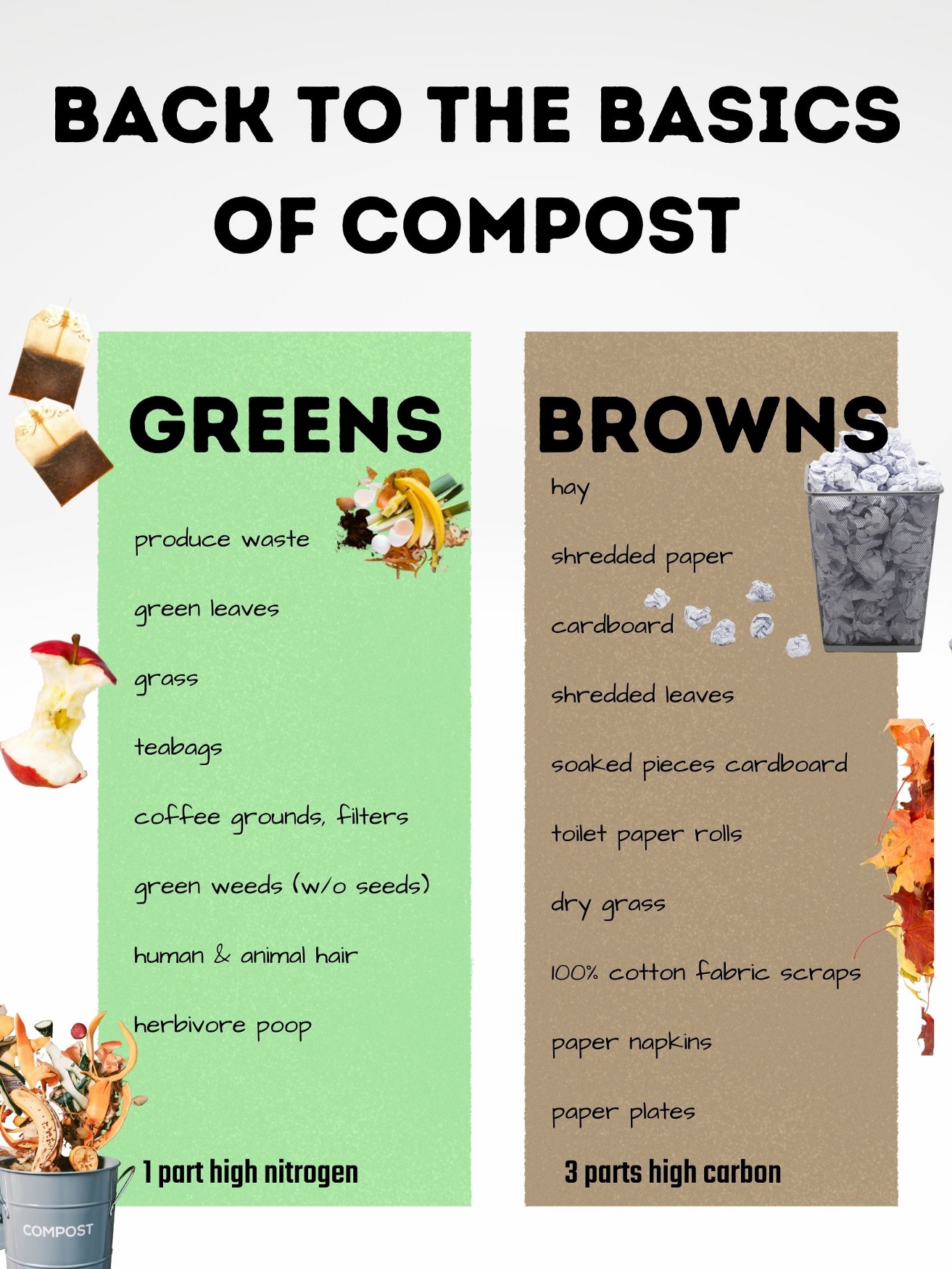Compost
Food waste is a big problem in our society. In the United States, approximately 63.1 million tons of food was wasted in 2018, and over half of this food waste was landfilled. This is a problem because once food is deposited in the landfill, it undergoes a slow decomposition process due to the lack of oxygen in landfills that produces methane. Methane emissions are 28 to 36 times more potent than carbon dioxide, meaning they are much more effective at trapping heat in the atmosphere. Because of this, food waste is detrimental to the planet in a variety of different ways.
Keep Food Waste Out of Landfills. Try Composting!
One of the best things you can do to keep food waste out of the landfill is to make a conscious effort to use food before it goes bad. However, if you do have food scraps that are simply unusable, composting is a great alternative to just tossing it in the trash. Composting is a natural process in which biodegradable items like food, garden trimmings, and even paper and cardboard are broken down into a rich soil substance. This soil is great for use in your garden, which is why composting is not only environmentally-friendly but also cost effective. If you don't have a garden but still want to send your food waste to compost, check out the various resources listed below.
Composting Services & Resources
There are various businesses that provide composting services to Nevada.
Northern Nevada: Down to Earth Composting, RT Donovan Co. Inc., Bentley Ranch, Full Circle Compost (composting for businesses)
Southern Nevada: Terra Firma Organics, Viva La Compost
Carson City Residents: Check out this video guide on how to keep your green "clean" from Full Circle Soils & Compost
How to Compost
There are many ways to get started with composting. If you have a yard, the easiest way to compost is by establishing a composting area that is shady and close to water. You can even build a bin that helps corral your materials. Once this area is set up, add brown and green materials to the pile and add a little water to keep it moist. Lastly, make sure you turn the pile weekly using a shovel or pitchfork. This will add air to your pile and speed up the decomposition process. The pile will be ready to use once the material is dark brown and uniform in consistency (you shouldn't be able to see that banana peel!).
Check out the University of Nevada, Reno Cooperative Extension Guide on Composting.

If you don't have a yard, you can also compost indoors using a well aerated bin. This compost will require more tending, but it shouldn't attract pests. You can put the same materials as outdoor compost in your indoor bin. Decomposition will occur faster if you frequently turn the contents and have smaller pieces of food and other biodegradables. Adding shredded paper or dry leaves to the bin each time you put something in it will also keep your bin from getting too soggy and provide it with some much needed carbon.
Compost Permits
Is your compost pile so successful that you would like to begin selling to customers? If so, obtain a FREE permit from NDEP to run your facility! The permit application and guidance documents to help determine if you need a permit, how to obtain one, and how to safely manage your operation are located on our Forms & Guidance page.
Vermicomposting
Vermicomposting is another great form of indoor composting. By using red wiggler earthworms and a well ventilated bin, you can have your own worm composting system! Check out this guide to help you get started.
Interested in bringing this education to your classroom or business? Contact us to schedule a presentation!